#rehabilitative justice
Text
How Goro Akechi effectively serves as a dark foil to the Phantom Thieves' brand of rehabilitative justice
So... I understand that Goro Akechi is a pretty divisive character within the Persona 5 fanbase (especially his pre-Royal incarnation), but I have to admit, I honestly found his backstory and role as a sinister foil to Joker and the Phantom Thieves to be legitimately intriguing.
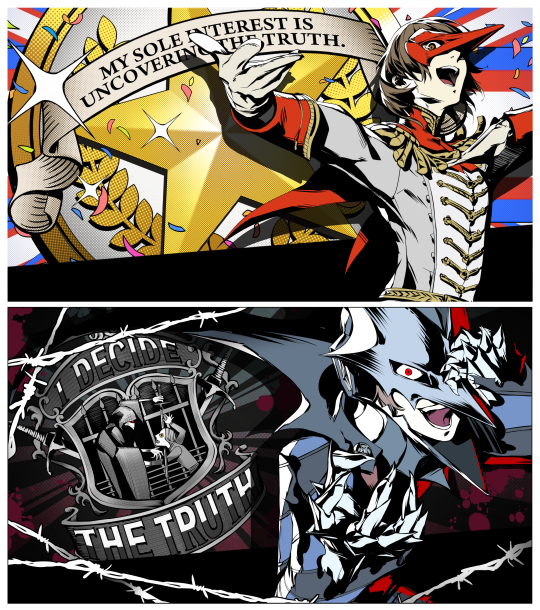
I loved how during the palace mission on the cognitive yacht of the corrupt ultra-nationalist politician, Masayoshi Shido, it is revealed that Akechi is not only the true culprit behind the mysterious wave of mental shutdowns & psychotic breakdowns that have occurred throughout the background of the entire game (including the deaths of both Futaba’s mother, Wakaba Isshiki, and Haru’s father, Kunikazu Okumura) but that he is actually Shido's illegitimate child!
Essentially, Akechi was the product of a dubious affair between Shido and a sex worker whom the former later discarded when he discovered that she was pregnant, driving her to depression and suicide shortly after Akechi's birth. Akechi spent his entire childhood being passed around as a “problem child” between various foster homes (highlighting Japan’s problems with how the country treats its orphaned children) before later being granted the power of the "wildcard" persona as well as knowledge of the Meta-Verse by the false god of control, Yaldabaoth.
While Akechi was a societal outcast similar to the members of the Phantom Thieves, he took the wrong message from his experiences. Akechi misguidedly believes that the only way to truly oppose the status quo that looked down upon him is to not only become a part of it (i.e. caring only about his good grades & celebrity status) but to destroy everything that he hates by reducing himself to Shido's right-hand assassin in the Meta-Verse, perpetuating mental shutdowns & psychotic breakdowns to Shido’s political enemies simply to get some semblance of recognition & validation from his abusive father before exacting revenge on him (whilst exploiting his "ace-detective" celebrity status to "solve" the crimes that he himself committed).

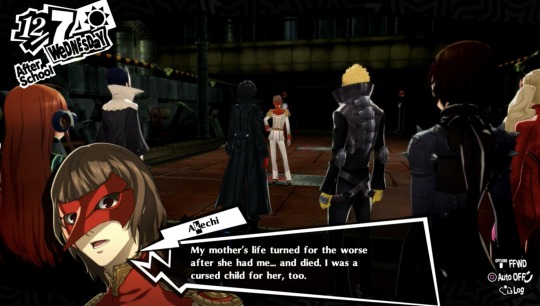
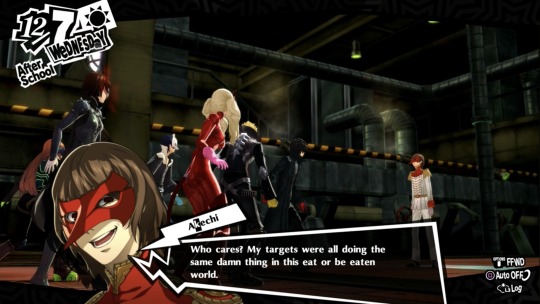


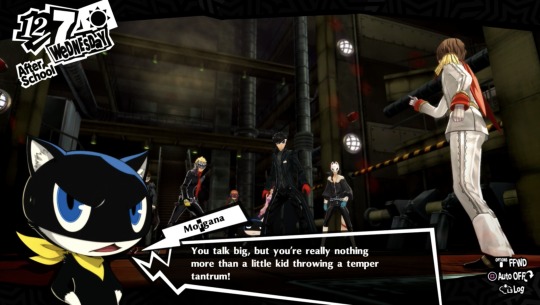
Essentially, once Shido finally became prime minister Akechi planned to whisper the truth about being the former’s illegitimate child, telling Shido that he was only able to get where he was due to the son he abandoned and labeled as a potential “political scandal” before murdering him.
Despite Akechi and the Phantom Thieves' mutual dislike of Shido however, Akechi is so fixated on vengeance that he does not care about the innocent lives he ruins and destroys in the crossfire to satisfy his own personal bloodlust. Instead of legitimately trying to reform society like the Phantom Thieves do, Akechi becomes a pawn of the very same systemic corruption that was responsible for his initial suffering. Akechi cares only about his own hatred & jealousy instead of empathizing with others who were also victimized by society’s ills. That is why when Joker has his rematch with Akechi on Shido's Yacht in the meta-verse, the two are visually juxtaposed between Joker standing strong alongside his teammates & friends, while Akechi remains alone, confused & angry. While there is a part of Akechi that regrets his horrible actions and even recognizes the potential for him & Joker to be friends due to their similar backgrounds, he's too far gone into his obsessive vendetta against Shido that he refuses to turn back and now desires to kill the Phantom Thieves in a misguided attempt to ease his internal conflict.





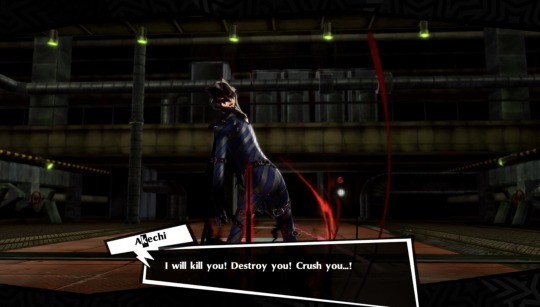
During the boss fight with Akechi in Shido's Palace, the detective prince repeatedly dismisses the Phantom Thieves' efforts to appeal to his common senses, believing that concepts like friendship and teamwork are foolish "cliched bullish*t... in this eat or be eaten world." While this attitude of Akechi's might seem unrealistically cartoonish on the surface, it actually makes sense when considering his background of being unfairly labeled as a "throw-away child" by Japan's foster care institutions. YouTuber LadyVirgilia goes into far greater detail about this in her excellent The Truth About Goro Akechi analysis video. There, she states that an overwhelming number of Japanese orphans are incapable of being legally adopted due to impoverished parents voluntarily relinquishing them from their care while still maintaining legal guardianship over them. Additionally, LadyVirgilia discusses how violent hierarchical power structures often form among the children within these foster homes, with younger orphans sadly being subject to bullying & abuse by their older peers.
While these facts are not explicitly stated about Akechi's backstory within P5 Royal itself, they can easily be heavily inferred due to the game's heavy emphasis on exploring themes related to Japanese sociocultural issues. The institutional failings of Japan's foster care system (combined with Shido's abandonment of his son while he was still in the womb), ultimately contributed to the development of Akechi's warped perception of the rest of the world. Due to being dismissed as a "throw-away child" and being forced to grow up in an institution that is unfortunately subject to high rates of systemic abuse & neglect, Akechi spent his entire life feeling unwanted & loved. Ideals such as friendship & companionship became foreign and unrealistic concepts to him due to having experienced nothing but society's cold & uncaring apathy. Consequently, Akechi became deeply jealous & hateful toward the rest of the world, misguidedly compelling him to want to prove his superiority over the rest of society by manufacturing his status as "the celebrity ace-detective and honors student who ultimately brought down Shido." But when Akechi encounters the Phantom Thieves and befriends their leader Joker, he begins to experience his first genuine bond of companionship. While Akechi maintains a legitimate appreciation toward Joker, he is simultaneously confused & unable to fully process these newfound feelings, becoming envious of Joker's ability to rise above his similar status as a societal outcast to befriend & protect others like himself. Consequently, Akechi projects his own failings & inability to legitimately rise above his tragic upbringing beyond his false celebrity status onto Joker & the Phantom Thieves, cruely dismissing them as "the trash of society" and blaming them for interfering with his revenge plot against Shido.
This empty & hollow existence that Akechi chooses to live is further reflected by the sole two personas that he utilizes during his boss fight: Robin Hood, who represents Akechi's false celebrity & law-abiding gentleman facade, and Loki, who embodies Akechi’s true personality as a deceitful trickster & psychotic murderer.
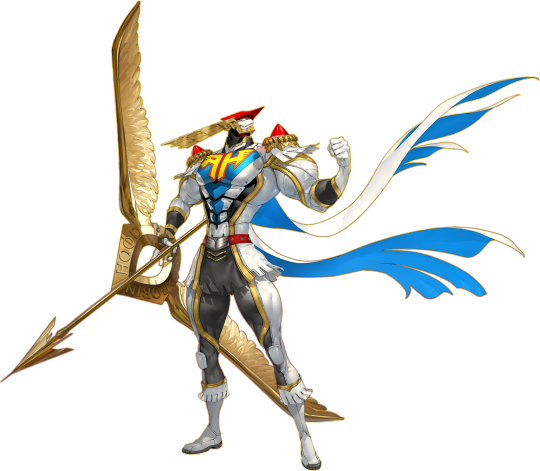
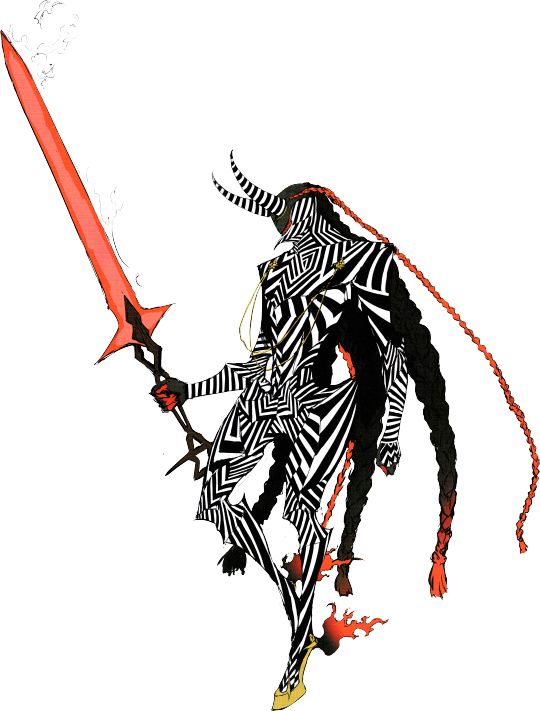
I personally couldn’t help but find all of these elements to be rather interesting & insightful about Akechi’s role as an antagonist/rival to the Phantom Thieves. It honestly highlights the tragic nature of Akechi's situation, since while he had the potential to utilize his deductive knowledge & skills as a "wildcard" Persona-user similar to Joker, he instead allowed himself to be consumed by his own hatred & madness. In contrast, while Joker was also abused by Shido by being wrongfully sued for “assault” when he tried to stop Shido from sexually harassing a random woman, Joker now fights against the systems of authority that criminals like Shido represent to prevent similar abuses of power from ever occurring again to others. Additionally, we also see dualistic parallels between Akechi and Joker's fellow Phantom Thief/potential-romantic partner, Makoto Nijima, since she too similarly previously fell prey to the misconception that “good grades and following orders are all that truly matters to be a worthwhile member of society.” However, Makoto, now utilizes her study skills to help the downtrodden & oppressed instead of for either her own benefit or because it’s what society expects from her, whereas Akechi exploits his false celebrity detective status to further his self-centered vendetta, innocent lives be damned.
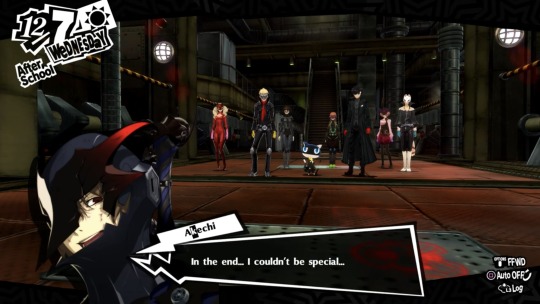
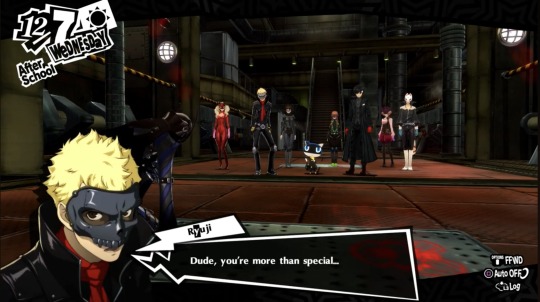
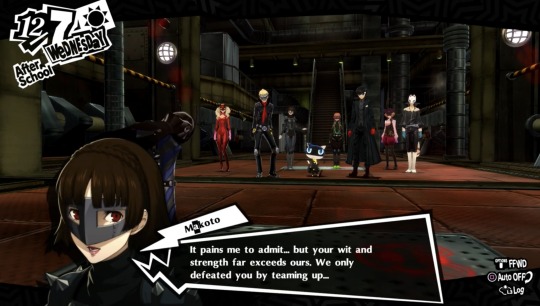
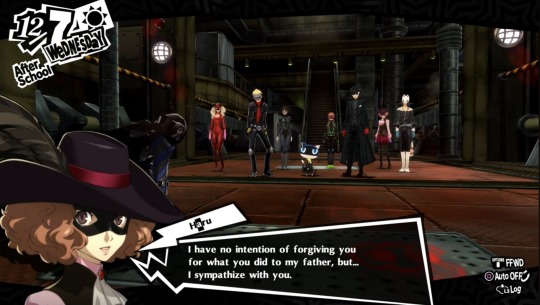
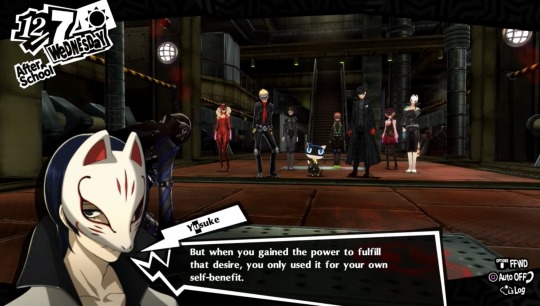
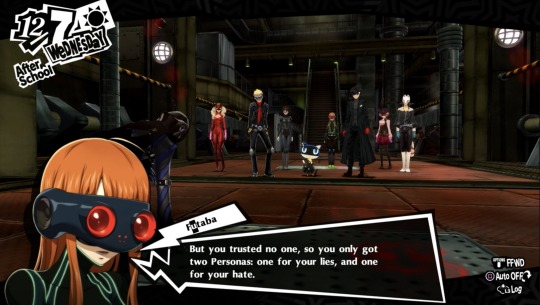
In essence, if the Phantom Thieves embody the potential benefits of rehabilitative justice then Goro Akechi embodies the dangers of retributive justice (aka, revenge). To reference two of my favorite movies, Batman Begins and Star Wars Episode VIII: The Last Jedi, not only is there a strong difference between justice and revenge (one is about altruistic harmony whereas the other is about personal satisfaction), but the most surefire way to victory is by fighting to protect what you love rather than fighting to destroy what you hate...

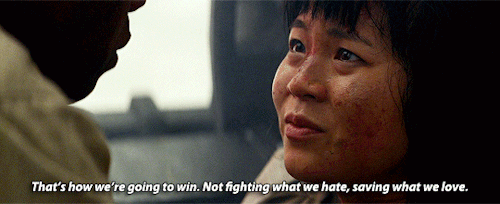
The distinction between justice & revenge is made abundantly clear at the end of Akechi's storyline in the baseline game (i.e. before the Royal exclusive Third Semester new content), where following his defeat at the hands of the Phantom Thieves Akechi is suddenly approached by a cognitive duplicate of himself that dwells within Shido's palace. In addition to the Cognitive Akechi emphasizing the futility of Akechi's quest for acknowledgment & vengeance against Shido by revealing that the latter always intended to dispose of his right-hand assassin once he was elected prime minister, the cognitive duplicate also reveals the true depths of Shido's depravity when he states that he only ever viewed Akechi as a puppet to fulfill his own ambitions. While it is true that Akechi was so obsessed with revenge that he allowed himself to become a pawn of the corrupt status quo, it is exceptionally cruel to learn that this is how Shido has always viewed his own son (which is further punctuated by Shido later revealing to the Phantom Thieves that he secretly always suspected that Akechi was his illegitimate child due to how much he reminded him of his mother). It is this revelation in particular that allows the Phantom Thieves to better empathize with Akechi's tragic upbringing & circumstances. Even though they still seek to hold Akechi accountable for the murders that he committed at Shido's behest, the Phantom Thieves simultaneously recognize that in a sense, Akechi was also a victim of both Shido's cruelty and the systemic injustices of larger Japanese society.
This effectively culminates in the bittersweet resolution to Akechi's storyline in the base Persona 5 game. When the Cognitive Akechi duplicate offers his real-world counterpart one last chance to "redeem" himself in Shido's eyes by killing the Phantom Thieves in his stead, Akechi for the first time in his life decides to be his own person instead of being defined by the labels Shido and society had imposed upon him since birth. Choosing to no longer be a puppet of Shido's corrupt machinations, Akechi rejects his cognitive duplicate's hollow offer by instead turning his gun on the duplicate and his Shadow minions before sealing the engine room's watertight doors between himself and the Phantom Thieves. At the very end, Akechi was finally able to acknowledge that his desire for false appreciation from both his abusive father and larger society was ultimately worthless. Akechi ultimately sacrifices himself to allow the Phantom Thieves to escape, recognizing their true justice while entrusting them to do what he was incapable of by holding Shido accountable for his crimes & reforming society.
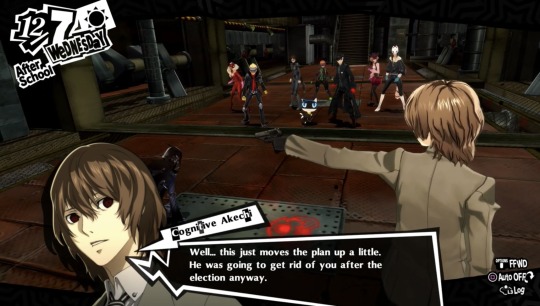

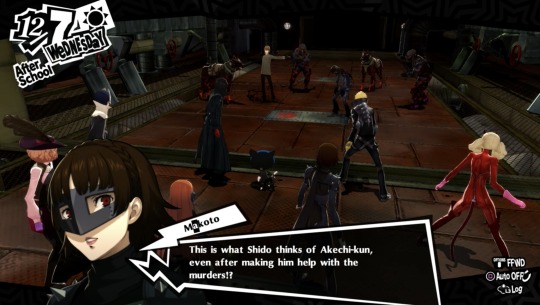

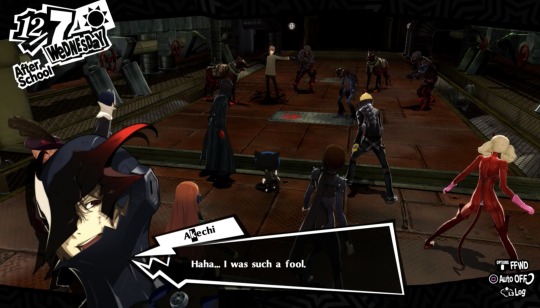
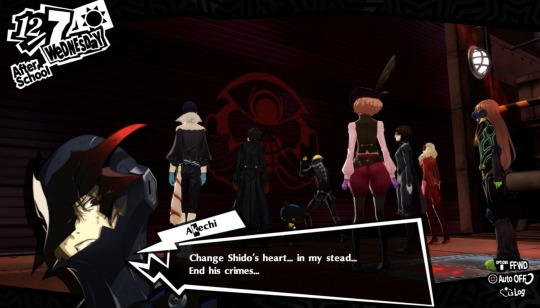
From a certain point of view, one could argue that the Phantom Thieves indirectly inspired a change of heart in Akechi by proving to him the validity of their sense of justice.
Overall, while I was initially indifferent towards Goro Akechi at the start of my playthrough of Persona 5 (and even outright skeptical & suspicious of his motives given his vocal opposition to the Phantom Thieves), by the time I got to his boss battle in Shido's palace I ended gained a deeper understanding and appreciation for what the developers at Atlus were attempting to convey with his character. Akechi effectively functions as both a cautionary tale about the dangers of allowing oneself to be consumed with thoughts of revenge, as well as a dark parallel to the Phantom Thieves who seek to legitimately reform society for altruistic rather than self-centered reasons. It was these elements that ultimately elevated Akechi into becoming one of my personal favorite members of P5's cast (right behind Makoto, Futaba & Ann...) from both a narrative and character writing perspective (especially with the Royal edition's overhauled confidant line for Akechi, which better fleshes out the latter's rivalry with Joker, and the player now has to progress manually instead of it being automatic)! And I am definitely curious to see how Royal's exclusive "Third Semester" content further fleshes out Akechi's character since I'm aware that he plays a major role in the new story content.
#persona 5 royal#p5 royal#persona 5#goro akechi#crow#black mask#robin hood#loki#masayoshi shido#phantom thieves#p5 joker#p5 protagonist#ren amamiya#makoto niijima#ann takamaki#ryuji sakamoto#morgana#yusuke kitagawa#futaba sakura#haru okumura#batman begins#the last jedi#justice vs revenge#rehabilitative justice#atlus games#video games#mini essay#Youtube
114 notes
·
View notes
Text
shoutout to recovering abusers, especially those who are abuse/trauma survivors themselves. you and i both know that, unfortunately, once we do something, we can't take it back. i know it hurts to know that, but recognizing it for what it is... that's what allows you to do the only thing left to do - be better. it's not easy, nor pleasant, and likely, a very isolating experience.
so i want you to know, there's at least one person out there who's rooting for you, who's proud of the person you're becoming. you are not doomed to do horrible things forever. you are not beyond leading a happier, healthier life. growth is an option. healthy relationships are an option. they have to be, for all our sakes.
if you want to stop hurting others, and stop hurting yourself, your choice is right here. i believe in you. you can do it. you have to. break the chain.
#softspoonie#abusers#abuse#recovering abuser#recovering abusers#abuse survivor#trauma#trauma survivor#mental health#mental health support#abusive relationships#abusive relationship#abusive#rehabilitative justice#rehabilitation#recovery#growth#healing#personal growth#positivity#mental health positivity
155 notes
·
View notes
Text
It's genuinely so disheartening to be an American and realize how deeply your fellow Americans buy into punitive "justice," how much they distrust rehabilitation models/think it's "rewarding criminals for crime," and how they'll buy into the police state so long as it's punishing "the right people."
So many Americans genuinely don't see criminals as largely people who have been forced into illegal activity due to desperation/lack of options/bad upbringing, or even people at all. They think we need to just start punishing people even harder and then crime will go away, while ignoring how hostile society is towards ex-cons and how hard it is for former inmates to reintegrate back into society. I'm not even going to touch how racist/classist this topic is because that's another 10 paragraph post.
It's just... it's exhausting, man. And I can't even blame people because I used to be like that. I'm still working on it, in some ways. Because so much of American culture brainwashes you into buying into the prison-industrial complex and the police state.
340 notes
·
View notes
Text
i think one of the major obstacles to rehabilitative justice that we really need to talk about is that even when the victims call for it, people don't give a shit what they ask for.
victims of abuse and harm are banners to be brandished to brand yourself a Good Person, not actual people that have suffered and who would like to be safe from their abuser without killing them and while making sure that abuser also gets the help they need.
nowhere was this more apparent than in the call out of sophie from mars. the manifesto of the victims was clear. they wanted people to be aware of the issue so that sophie had no choice but to stop doing harm. they specifically said they did not want people to stop supporting her work. they specifically said they wanted to be cut off from her. that's it. plain and simple.
and once again, the internet asked how they dared say they piss on the poor.
on top of how sophie was harassad, her every move criticised by people who clearly don't give a shit about what the victims asked for, the victims were harassed as well for not going hard enough. for not posting more details. for not throwing her to the fucking pigs.
this helps no one.
so next time you find yourself in front of such a situation, ask yourself this:
do i want people to be safe, or do i want to see a woman bleed?
and if you find yourself refusing to take any attempt at accountability at face value, refusing to accept apologies that are not meant for you, refusing to engage with the victims' demands and refusing to see the abuser reform themselves, face the facts.
you just want to see a woman bleed. own it. own the fact that the only thing you care about is being in the Right. not healing. not helping. not protecting. just making sure you're in the Good Team.
27 notes
·
View notes
Text
Im really getting tired of those youtube videos that use paraphiles as shockbait and demonize people for just existing in fandom spaces and having an abnormal identity. Like... come on... I don't care about what someone did in a fictional setting or in a private space as long as no one is being hurt or violating consent. They always play into this idea that someone is irredeemable and unlovable if they do X thing or deserve to be punished instead of receiving rehabilitative care and redemption if they did something damaging. It's just tiring seeing people regurgitating a formula designed for algorithmic profit to cancel someone. It feels like a reincarnation of cringe culture that should be dead at this point. We can do better, people.
17 notes
·
View notes
Text
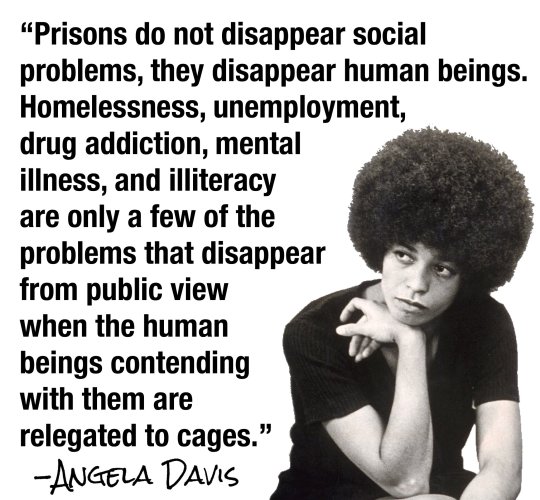
#communism#history#current events#politics#socialism#marxism#gaza#anarchism#anarchocommunism#gaza solidarity encampment#communist party#communist#angela davis#bpp#prisoner#progressive politics#rehabilitation#rehabilitative justice#liberty#social justice#socialist politics#social issues#black liberation#blacklivesmatter#neurodivergent#homeless#lgbtq#solidarity#usa#current affairs
14 notes
·
View notes
Text
Marvel's Spider-Man 2 (PS5) Thoughts - Beginning At The End
No photos this time (I might add a few later). But I've got a lot of thoughts (and photos) about this game now that I'm finishing it up, but I just got finished my last sidequest in the postgame and I wanted to gush about it.
Spoilers, by the by. Quite a few of them.
----
The Mysteriums were a lopsided a pain the ass but man am I glad I saved this quest for last.
I've been thinking a lot about how much this game seeks to embody why Peter's beliefs in having empathy for the people he fights and getting to know who these villains are as people matters, and this quest - as well as Quentin Beck's final words to cap off the story - are such a perfect capper to that.
Nothing is as it seems, especially when you look at heroes and villains. Anything can change for anybody faster than you could ever realize it. When you take the masks off, it's all people making decisions. A good person can go down a dark path, a bad person can decide they no longer want to be that person any more. Not everyone is going to, but it's important to know that such a thing is always possible.
Heck, this game has an almost ''unprecedented'' number of reformed villains for a superhero franchise: Sandman, Mysterio, Tombstone, Mr. Negative, Prowler technically Lizard, all people who understand they did wrong and whose only motivation now is trying to make their way in the world going forward.
Jonah has a podcast early in the game where he insists that people never really change (about either Sandman or Lizard, iirc), advocating for criminals to be just kept in prison in perpetuity (which, I like this version of Jonah, but goddamn is he hard to like sometimes). Wraith advocates just killing these guys because naturally they're never going to change and they might as well be removed from the equation. And naturally, Symbiote Peter eventually starts considering the idea that maybe the best way forward is just to kill everybody who could be a threat.
But this game doesn't just counterpoint that by having its ultimate evolution be monstrous like most superhero works: instead, this game makes a strong point of why that mentality doesn't work - this is a fantasy story, but it's also a good point for real life.
Coming from a law family where I had a lot of interaction with formerly incarcerated people, and living in an inner city relationship where - again - anything can happen to skew a person's life in ways nobody thought they would go, it's not just a more realistic point - it's an essential point: people always change, and any belief otherwise is just an excuse not to examine the world around oneself. They can change for the worse, they can change for the better, or just kind of laterally shift, but they always change. A failure to recognize it is a failure of the self, not the other.
There's a strong trend of former villains in this game being taken advantage of by other villains, with the new villains doing so with the expectation that nobody will come to the former villains' aid, trust them, or aid them in any way (Mysterio's partners try to frame him, Tombstone and Negative get abducted by people who were sure no one would come for them, Sandman gets driven mad and dumped onto the city to be tossed into prison). And it's absolutely amazing to be Spider-Man in this game and be the one who fights tirelessly for everybody, even the people who have spurned their chances before, because that's who Spider-Man is.
Even if their stories still don't always end positively. Because it's still the right thing to do it, and it's a worse crime to stop.
Man, I love Spider-Man.
As a final note, I especially like that none of the former villains really expect to be forgiven and several never are. This might be the philosopher in me talking, but it's not in forgiveness that one finds redemption, but in the capacity of change in and of itself.
#the video game shutterbug#spider man ps5#marvels spider man 2#playstation 5#insomniac games#heroes and villains#mysterio#sandman#tombstone#prowler#the lizard#mister negative#people always change#rehabilitative justice#philosophical thoughts#heroism#no photos in a photo focused blog#lots of spoilers though
27 notes
·
View notes
Text
You know something that pisses me off? Drake Bell was "cancelled" or whatever for being inappropriate with teenage girls and embarrassingly immature. Now everyone's like "wow it turns out there are reasons he is the way he is" and suddenly you all feel bad for him like wow you don't fucking say. People have no space in their minds for critical thinking or nuance and it's infuriatingly lazy and unproductive, even counterproductive.
To quote @sapphling (RIP to that fucking blog gee I wonder what happened there:)
it's just absurd how many "you have to think CRITICALLY about kink" addicted-to-talking-about-reading-comprehension types on here have fully and uncritically bought the standard societal narrative that sexual violence is something that happens because some people are Born Perverts and that those Perverts wake up every day saying "I love sexual violence. Sexual violence is my kink. Today I am going to do sexual violence." it's a very safe and very satisfying lie to swallow which lets you absolve the systems of power which produce sexual violence, as well as any complicity you could potentially hold by propping them up; and it goes further to absolve the self of any potential individual responsibility, because of Course you're not capable of reproducing sexual violence or violating another person's consent -- because that's what Perverts do, and you're not a Pervert, and maybe the Pervert even absolves you of a little bit of that unspeakable unmentionable bigotry in the back of your mind (think about how many marginalized people's "callouts" are met with an "I always knew something was wrong, she always made me uncomfortable to look at, I always thought they were probably a creep," justified ex post facto by the presence of Perversion). it's the same thing that dyed-in-the-wool conservatives do with Kill All Pedophiles, it's been the same since the early 20th century conceptualization of The Pervert to explain why communism and discontent were gaining a foothold, it's one of the most politically unifying impulses of normative society: justify the status quo, explain violence as an outlier, attribute the outlier to a monster, redirect anger and remorse and action towards the monster. the reason why new conceptualizations of Perversion feel right to you may be less due to an inherent political brilliance which your perfect soul can see in them -- and in fact it might do you well to consider if these conceptualizations follow through to fact, if they protect the vulnerable, if they offer keen insight which would disrupt an order which presently produces an overwhelming amount of violence; or if they simply feel right because their adoption is politically, rhetorically, psychologically, and physically very, very easy
8 notes
·
View notes
Text
Do you believe violent criminals can ever be rehabilitated enough to be released back into society? Don't answer for whether you think our current systems allow for this, please only answer for whether you personally believe anyone CAN be rehabilitated.
#anti police#anti prison#abolish police#abolish prisons#prison industrial complex#rehabilitation#rehabilitative justice#social#social discourse#discourse#brett does discourse#polls
17 notes
·
View notes
Text
On Repentance and Repair: Making Amends in an Unapologetic World
One of the most interesting and thought provoking books I've read to date! Having grown up in a largely Christian family and living in a country significantly influenced by similar values, topics around wrong-doing and amends have always been through that one lens. Generally this involves a heavy focus on punishment, quick forgiveness, and returning to normalcy instead of rebuilding what was broken.
This book lays out the process of repair and atonement through the Jewish philosophy, which was eye-opening to me with how much more respectful it is towards victims and their needs. It goes into depth on how perpetrators should own harm and and provide restitution while leaving the path open to coming back into society as a transformed and bettered person.
A quote from the description:
...Forgiveness is much less important than the repair work to which the person who caused harm is obligated. The word traditionally translated as repentance really means something more like return, and in this book, returning is a restoration, as much as is possible, to the victim, and, for the perpetrator of harm, a coming back, in humility and intentionality, to behaving as the person we might like to believe we are.
This contrasts to the views and approaches most common in my country that ironically pushes hard for the victim to forgive, regardless of whether the perpetrator has genuinely made amends, while simultaneously leaning on punitive and retributive justice that often reduces the chances that the perpetrator will change for the better - or even have the chance to.
A highly recommended book for those interested in restorative justice, or even just understanding repentance from Judaic philosophy!
#criminal justice#forgiveness#making amends#repentance#books#restorative justice#repair#restitution#social justice#judaism#philosophy#apology#atonement#reconciliation#rehabilitative justice#reading#relationships
25 notes
·
View notes
Text
For most leftists, you simply gotta pick someone they don't like, and their claims of supporting rehabilitative justice fly out the window.
#punitive justice#rehabilitative justice#hypocrisy#tarantulas#sex offenders#fascists#bigots#capitalists
4 notes
·
View notes
Text
punitive "justice" (ex: carceral system) will not save us and is a quite depressing stance on human nature and life. people can change. people can grow. people deserve basic rights, period. none of us benefit from a world where people who have done wrong are given no option but severe (and often permanent) punishment... especially not on a sociopolitical level. this is a bad thing, even putting aside the fact many of the people punished have not done anything wrong, or "wrong enough." people shouldn't have to be innocent for you to care, or at least acknowledge punitive measures don't actually change anything.
#softspoonie#rehabilitative justice#prison abolition#abolition#abolish prisons#carceral state#punitive justice#justice#antipsych#antipsychiatry#<- cause ykno. psych wards as punishment#abolish the police#acab
71 notes
·
View notes
Text
Had a conversation with a friend and they said "systemically things are criminalized even while in the media it’s glamorized" in reference to gangs but it also applies to general crime and my mind has been fucking opened yes yes yes this is the issue
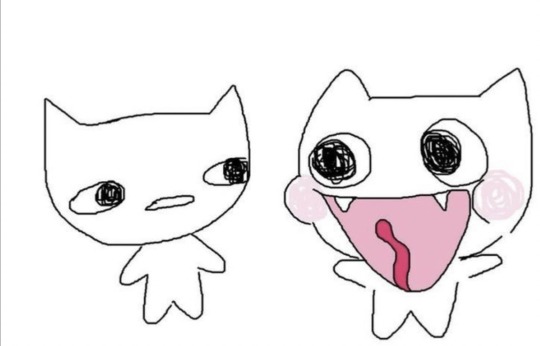
#personal stuff#noelle's rambles#criminal justice#crime news#crime portrayal#prison abolition#rehabilitative justice
2 notes
·
View notes
Text
“this person is cancelled and everyone who remains friends with them is equally culpable” okay yeah this person is vaguely problematic let’s RIP AWAY their support system so that the only sense of community they can find is in far right echo chambers :) haha what could go wrong!
#they need good people in their life to call them out and help them change you fool#how will they ever grow if the only people who will talk to them are right wing assholes#people will act like they believe in rehabilitative justice and then say shit like this#the only way people grow and improve is through community#cancel culture#rehabilitative justice#like#you guys
3 notes
·
View notes
Note
does "we support ex-pro contact paras" include those who actively acted on them?
I don't really support people who actively continue to harm people and it's important to hold people accountable but yeah I believe in restorative, rehabilitative, and transformative justice and I think people can be redeemed with help and community intervention. I don't think anyone is inherently irredeemable. it's not an excuse for abuse apologism or repeated abuse and it requires actively trying to help people be better. if you're actively anti-contact at the moment, I will support you. if you harmed other beings in the past but are making the choice to do better, I will support your recovery. I think punishment inherently doesn't help anyone and only leads to more people being hurt rather than fixing the actual problem at the source.
#rq 🌈🍓#radqueer#redemptionqueer#restorative justice#transformative justice#rehabilitative justice#anarchism
1 note
·
View note
Text
Mistakes don't make a person bad.
Personality disorders don't make a person bad.
Mental illness doesn't make a person bad.
Let people learn to be better.
#thinking aloud#seeing ppl eager to cancel folks for various reasons concerns me#frankly it reminds me of our justice system#the easy thing is to isolate them and let them rot#but the morally sound thing is to rehabilitate people and help life be better for everyone
2K notes
·
View notes